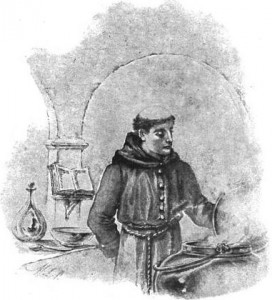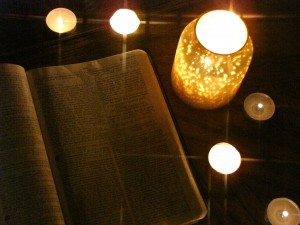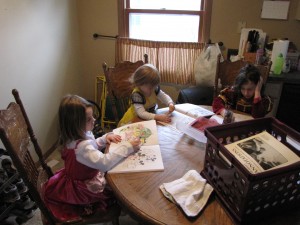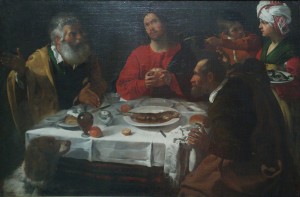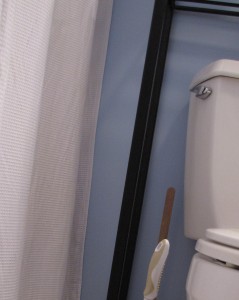If you missed my introduction to practicing the Spiritual Disciplines or part one of using the Spiritual Disciplines to help us abide with Christ in our everyday lives, you can click on the links to read or listen to those.
To hear my blog post read aloud, just click the play button. If you’re reading this in an email, you may have to click here to hear the post on my site.
One example of using the Holy Habits to remain mindful of God throughout our days, even in the most mindless of chores, comes from the writings of Brother Lawrence.
Many have found wisdom in the actions and words of the seventeenth century monk. Brother Lawrence wasn’t the most important monk in the monastery; on the contrary, he was the dishwasher.
This dishwasher for an entire monastery certainly knew how commonplace and uninteresting such tasks could be, yet his thoughts and writings about living in the presence of God at all times, even while washing dishes, influenced many around him and have continued to influence Christ-followers to this day.
For Brother Lawrence, standing at the kitchen sink was as sacred as kneeling at the altar. Both were opportunities to commune with Christ in an uninterrupted fellowship, both brought him a flow of peace as ceaseless as a river.
The time of business does not differ with me from the time of prayer; and in the noise and clatter of my kitchen, while several persons are at the same time calling for different things, I possess God in as great tranquility as if I were upon my knees at the blessed sacrament. ~ Practicing the Presence of God
In the same passage from the gospel of John in which Jesus speaks of abiding in Him, He reminds us that apart from Me you can do nothing. Whether you are able to find large spaces of time in which to practice these Habits regularly or whether you simply wrap your day in them through small ways, God the Holy Spirit uses this regular abiding in Him to increase our dependence on Him.
They force us to rely on God to provide for this day only.
God transforms us in the now, through the present moment, and this sacred routine keeps us rooted in this present moment when we mostly desire either to dwell in the past or fret about the future.
Thomas Moore spoke of the sacredness of this routine when he said that “the ordinary acts we practice every day at home are of more importance to the soul than their simplicity might suggest.”
Frederick Buechner also spoke of ordinary life as a fathomless mystery. He admonishes us to listen to the ordinary, everyday life and see it for what it truly is:
In the boredom and pain of it no less than in the excitement and gladness: touch, taste, smell your way to the holy and hidden heart of it because in the last analysis all moments are key moments, and life itself is grace.
When we find our way to the holy and hidden heart of our daily routine, we find that Jesus truly is before all things, that Christianity is not compartmentalized and relegated to a few hours on Sunday. Our Christian faith is a way of life. It is a way of doing life, a way of living life in relationship to the One who is the way, the truth, and the life.
God asks not for a few hours on Sunday. He asks not even for a few moments each day. He is Lord and He demands nothing less than all of us. It seems arduous, yet He promises that His burden is light and so we find, after all, that our greatest joy and our deepest peace is found on those days during which we are most successful in inviting Him into every moment of our day.
We find, too, that His command to abide in Him is, in the end, a promise. A promise that one day we will be fully His, transformed to be fully like Him, and we cooperate with this transformation as we do the things that Jesus did, watching to see what His habits and practices were and imitating them.
Christ is before all things, even toilets, and in Him all things hold together. All things were created by Him and for Him. If all things are created, then all things are sacred and can be used by God to awaken us to His presence and to transform us into His likeness.
Art credit: Supper at Emmaus by Caravaggio; all other photographs copyright Made Sacred 2017

